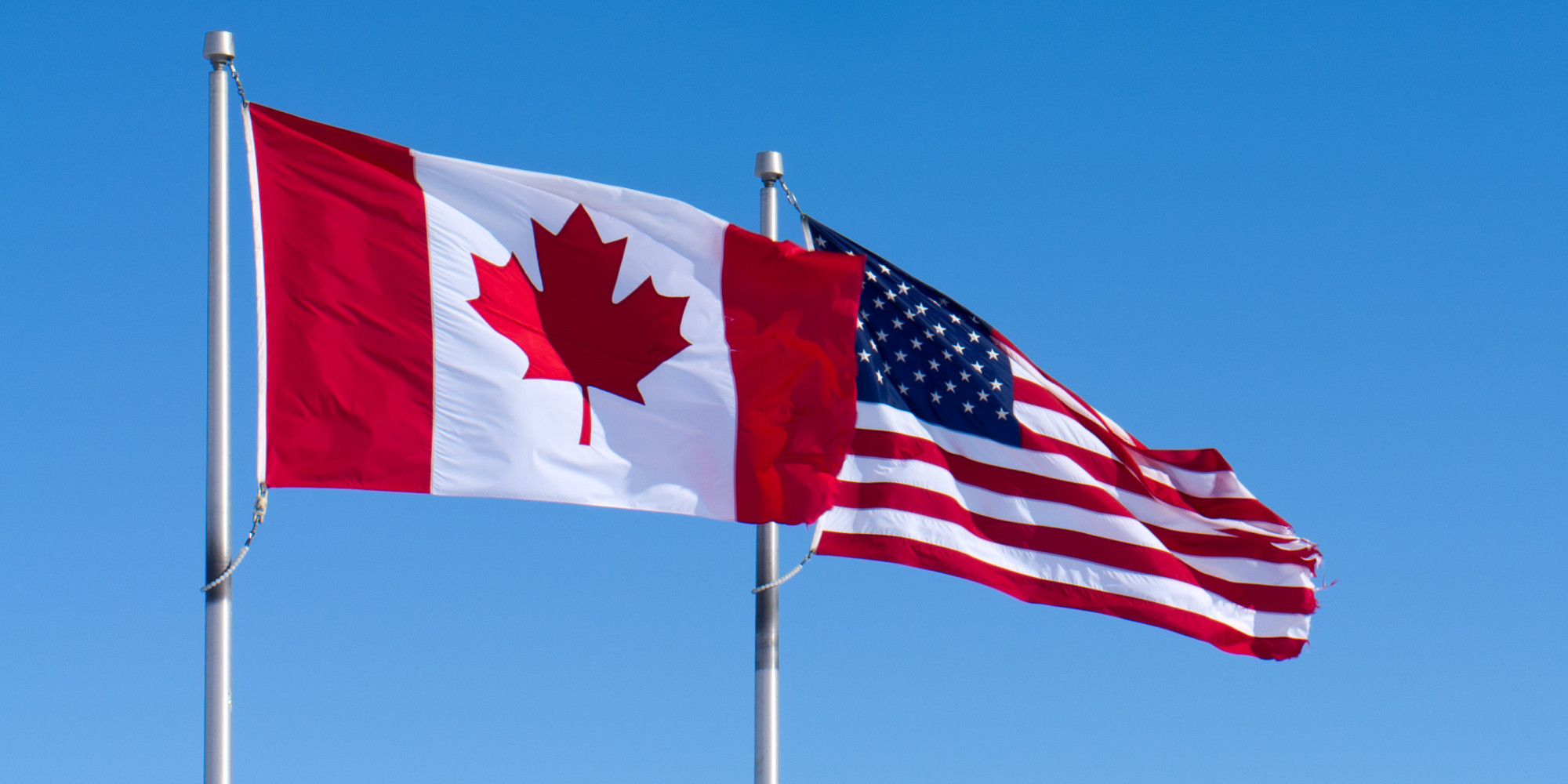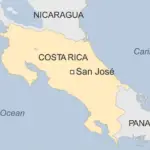I. Introduction
Why Move to Canada from the US?
There are several reasons why many people choose to move to Canada from the US:
- Quality of Life: Canada consistently ranks high in terms of quality of life, with its excellent healthcare system, low crime rates, and high standard of living.
- Safety and Security: Canada is known for its safe and peaceful cities, offering a sense of security for individuals and families.
- Immigration Opportunities: Canada has a welcoming attitude towards immigrants and offers various immigration programs to help individuals and families settle in the country.
- Education System: Canada has a world-renowned education system, with top universities and colleges that attract students from around the world.
- Diverse Culture: Canada is known for its multiculturalism and celebrates diversity, making it an inclusive and accepting society.
- Job Opportunities: Canada is one of the world’s leading economies, providing numerous job opportunities across various industries.
- Natural Beauty: Canada is famous for its stunning landscapes, including vast forests, beautiful lakes, and breathtaking mountains.
Benefits of Living in Canada
Living in Canada offers several advantages:
- Universal Healthcare: All Canadian citizens and permanent residents have access to free healthcare services, providing peace of mind when it comes to medical expenses.
- High Standard of Living: Canada consistently ranks high in terms of the standard of living, offering a good work-life balance, affordable housing, and quality public services.
- Safety and Security: Canada is recognized as one of the safest countries in the world, with low crime rates and a strong legal system.
- Education System: Canada’s education system is highly regarded globally, with top-notch universities and schools that provide excellent education opportunities.
- Social Benefits: Canada offers a variety of social benefits, such as parental leave, retirement benefits, and employment insurance.
- Outdoor Activities: Canada’s vast and diverse landscapes provide numerous opportunities for outdoor activities, including hiking, skiing, and camping.
Moving to Canada from the US can be an exciting and rewarding experience, offering a high quality of life, diverse culture, and abundant opportunities for individuals and families.
II. Canadian Immigration Programs
If you are considering moving to Canada from the US, there are several immigration programs that you can explore. These programs are designed to help individuals and families relocate and settle in Canada. Here are some of the most popular Canadian immigration programs:
Express Entry System
The Express Entry System is a fast and efficient way to immigrate to Canada. It is a point-based system that assesses your age, education, language proficiency, work experience, and other factors to determine your eligibility for permanent residency. The Express Entry System manages three federal economic programs:
- Federal Skilled Worker Program (FSWP): For skilled professionals with work experience in a high-demand occupation.
- Canadian Experience Class (CEC): For individuals with previous work experience in Canada.
- Federal Skilled Trades Program (FSTP): For skilled tradespeople with work experience in a specific trade.
Provincial Nominee Program
The Provincial Nominee Program (PNP) allows Canadian provinces and territories to nominate individuals who have the skills, education, and work experience required to contribute to the local economy. Each province and territory has its own PNP with specific eligibility criteria. If nominated, you can apply for permanent residency through the PNP.
Family Sponsorship
Family Sponsorship allows Canadian citizens and permanent residents to sponsor their family members to come and live in Canada. This program is designed to reunite families and help them start a new life in Canada. Sponsorship can be for spouses, partners, dependent children, parents, and grandparents.
It is important to note that each immigration program has its own requirements and eligibility criteria. It is advisable to consult with an immigration lawyer or a certified immigration consultant to determine the best immigration program for your specific situation.
For more information on Canadian immigration programs, you can visit the official website of Immigration, Refugees and Citizenship Canada here. This website provides detailed information on the different immigration programs available and the application process.
III. Cost of Living in Canada
When considering a move from the US to Canada, it’s essential to understand the cost of living in your new country. Here are some key factors to consider when it comes to the cost of living in Canada:
Housing
- Renting: The cost of renting a home in Canada varies depending on the city and neighborhood. Larger cities like Vancouver and Toronto tend to have higher rental prices compared to smaller cities. On average, you can expect to pay around CAD 1,500 to CAD 3,000 per month for a one-bedroom apartment in a major city.
- Buying: If you plan on buying a home in Canada, the prices also vary depending on the location. Major cities tend to have higher property prices. It’s essential to research the housing market in the specific area you plan to reside in.
Healthcare
- Universal Healthcare: Canada has a publicly funded healthcare system that provides essential medical services to all residents. This means that basic medical services are generally covered by the government. However, it’s important to note that certain services, such as dental care and prescription medications, may not be fully covered, and individuals may need to purchase additional health insurance.
Education
- Primary and Secondary Education: Canada offers free primary and secondary education to all residents. The quality of education varies across provinces and school districts, so it’s important to research the specific area where you plan to live.
- Post-Secondary Education: Canada is known for its excellent post-secondary education institutions, with many universities and colleges offering a wide range of programs. Tuition fees for international students can be higher compared to domestic students, so it’s essential to budget accordingly.
It’s important to keep in mind that the cost of living can vary depending on your lifestyle and the specific location within Canada. It’s recommended to research and compare the cost of living in different cities to determine which option best fits your budget and lifestyle.
For more information on moving to Canada, you can visit the immigration to Canada Wikipedia page.
IV. Job Opportunities in Canada
If you’re considering moving to Canada from the US, one of the most important factors to consider is job opportunities. Canada has a strong economy and offers a wide range of job prospects for both skilled and unskilled workers. Here are some key points to know about job opportunities in Canada:
Growing Industries
Canada has several growing industries that present excellent job prospects. Some of the top industries include:
1. Technology: Canada has a thriving tech industry with opportunities in software development, artificial intelligence, and data analytics. Cities like Toronto, Vancouver, and Montreal are major tech hubs.
2. Healthcare: The healthcare sector in Canada is constantly expanding, providing job openings for healthcare professionals such as doctors, nurses, and medical researchers.
3. Construction: With a growing population and various infrastructure projects, there is a high demand for construction workers, engineers, and architects across the country.
4. Finance and Banking: Major cities like Toronto and Vancouver are financial centers, offering job opportunities in banking, accounting, and finance.
5. Renewable Energy: As the world shifts towards sustainable energy sources, Canada is investing in renewable energy projects, creating jobs in areas like wind and solar energy.
It’s important to research the job market in your specific field to identify the most promising industries and tailor your job search accordingly.
Work Permit and Visa Requirements
To work legally in Canada as a US citizen, you will generally need a work permit. Here are the key requirements for obtaining a work permit:
1. Job Offer: You must have a valid job offer from a Canadian employer, unless you are applying under specific programs like working holiday visas.
2. Labor Market Impact Assessment (LMIA): In most cases, your employer needs to obtain an LMIA, which demonstrates that hiring a foreign worker will not negatively impact the Canadian labor market.
3. Skills and Education: Your skills and qualifications must match the requirements for the job. In some cases, you may need to provide proof of your education and work experience.
4. Language Proficiency: You may be required to demonstrate proficiency in English or French, depending on the province or job requirements.
5. Work Permit Application: Once you have a job offer and meet the necessary requirements, you can apply for a work permit through the Immigration, Refugees and Citizenship Canada (IRCC) website.
Keep in mind that the process and requirements can vary depending on your specific situation. It is recommended to consult with an immigration lawyer or a registered immigration consultant to ensure you have the most up-to-date and accurate information.
V. Canadian Culture and Lifestyle
Diversity and Inclusion
Canada is known for its diversity and inclusive society. When moving from the US to Canada, you can expect to experience a welcoming and multicultural environment. Here are some key aspects of Canadian culture and lifestyle:
- Multiculturalism: Canada embraces multiculturalism, and its population is made up of people from diverse ethnic backgrounds. You will have the opportunity to interact with individuals from various cultures and learn about different traditions.
- Tolerance and Acceptance: Canadians are known for their tolerant and accepting attitudes towards individuals of all backgrounds, religions, and sexual orientations. You can expect to live in a society that values equality and inclusivity.
- Language: While English is widely spoken in Canada, the country is officially bilingual, with both English and French being recognized languages. In some regions, such as Quebec, French is the predominant language.
- Festivals and Celebrations: Canada celebrates a variety of cultural festivals and events throughout the year. From Canada Day on July 1st to multicultural festivals, there are numerous opportunities to immerse yourself in the vibrant Canadian culture.
- Cuisine: Canadian cuisine is a melting pot of flavors from around the world. You will have the chance to explore diverse culinary experiences, from poutine and maple syrup to international cuisines offered in multicultural cities.
Recreation and Outdoor Activities
Recreation and outdoor activities are an integral part of Canadian lifestyle. Canada’s vast landscapes offer numerous opportunities for recreation and adventure. Here are some popular activities to enjoy:
- Hiking and Camping: Canada is home to stunning national parks and trails, perfect for hiking and camping enthusiasts. Whether you prefer short walks or challenging hikes, there are options for every skill level.
- Skiing and Snowboarding: Canada is renowned for its world-class ski resorts. From the Rocky Mountains in Alberta to Whistler in British Columbia, you can enjoy thrilling winter sports in breathtaking settings.
- Canoeing and Kayaking: Canada’s lakes, rivers, and coastlines provide ideal conditions for canoeing and kayaking. Explore pristine waterways and experience the tranquility of nature.
- Wildlife Viewing: Canada is rich in wildlife, from majestic moose to playful seals. Take the opportunity to observe animals in their natural habitats by going on wildlife safaris or visiting national parks.
- Fishing: Canada is a paradise for fishing enthusiasts. With its vast freshwater lakes and rivers, you can try your hand at catching various fish species, such as salmon, trout, and walleye.
Canada’s commitment to preserving its natural landscapes and providing recreational opportunities makes it an ideal destination for outdoor enthusiasts.
By embracing the diversity and inclusivity of Canadian culture and taking advantage of the country’s recreational offerings, you can fully immerse yourself in the Canadian way of life.
VI. Canadian Citizenship and Permanent Residency
Canadian Citizenship Process
If you are considering moving to Canada from the US and becoming a Canadian citizen, here are the key steps involved in the Canadian citizenship process:
1. Determine your eligibility: Check if you meet the eligibility requirements for Canadian citizenship, including residency and language proficiency.
2. Start your application: Fill out the application form and submit it along with the required documents, such as proof of identity and residence.
3. Pay the application fee: There is an application fee for Canadian citizenship, so make sure to submit the payment along with your application.
4. Attend the citizenship test: If your application is approved, you will be invited to take the citizenship test. The test assesses your knowledge of Canada’s history, laws, and government.
5. Attend the citizenship ceremony: If you pass the citizenship test, you will be invited to attend a citizenship ceremony, where you will take the Oath of Citizenship and receive your Canadian citizenship certificate.
For more detailed information on the Canadian citizenship process, you can refer to the official website of Immigration, Refugees, and Citizenship Canada.
Permanent Residency Options
If you are not ready to apply for Canadian citizenship but want to establish permanent residency in Canada, there are several options available:
1. Express Entry: The Express Entry system is a popular pathway for skilled workers to immigrate to Canada. It is a points-based system that assesses factors such as age, education, work experience, and language proficiency.
2. Provincial Nominee Programs (PNPs): Each Canadian province and territory has its own PNP, which allows them to nominate individuals who meet their specific labor market needs. PNPs offer additional pathways for permanent residency.
3. Family Sponsorship: If you have a close family member who is a Canadian citizen or permanent resident, they may be able to sponsor you for permanent residency. This includes spouses, common-law partners, parents, and dependent children.
4. Start-up Visa Program: If you are an entrepreneur with an innovative business idea and the ability to create jobs in Canada, you may be eligible for the Start-up Visa Program.
5. Atlantic Immigration Pilot: This program is designed to address labor market needs in the Atlantic provinces. It allows employers in the Atlantic region to hire foreign workers and support them in obtaining permanent residency.
For more information on the different pathways to permanent residency in Canada, you can visit the official website of Immigration, Refugees, and Citizenship Canada.
Remember to carefully review the eligibility requirements and consider seeking professional advice to ensure that you choose the best option for your individual circumstances.
VII. Moving Process and Checklist
Moving to Canada from the US can be an exciting adventure, but it also requires careful planning and preparation. Here are some essential steps to help you navigate the moving process:
Preparing for the Move
• Declutter: Start by decluttering your belongings and deciding what to bring with you and what to sell or donate. This will help you streamline the moving process and save on shipping costs.
• Research: Familiarize yourself with the Canadian immigration process and requirements. Determine the best immigration program for your situation, such as Express Entry or Provincial Nominee Programs.
• Budget: Create a budget that includes moving expenses, visa application fees, transportation costs, and potential living expenses in Canada.
• Health Insurance: Research health insurance options in Canada and make sure you have coverage for the transition period before you become eligible for public health care.
Documents and Paperwork
• Passport: Ensure that your US passport is up to date. If it is expiring soon, consider renewing it before you move.
• Visa or Permit: Apply for the appropriate Canadian visa or permit well in advance. Make sure to gather all the necessary documents and meet the requirements.
• Personal and Financial Documents: Gather important documents such as birth certificates, marriage certificates, diplomas, and financial records. These will be needed for various purposes including opening bank accounts and enrolling in schools.
• Driver’s License and Insurance: Check the requirements for obtaining a Canadian driver’s license and transfer your US driving records and insurance.
Transportation and Shipping
• Moving Company: Get quotes from multiple moving companies and choose one that specializes in international moves. Ensure they have experience in moving to Canada and are familiar with Canadian customs regulations.
• Packing and Inventory: Make a detailed inventory of your belongings and consider purchasing additional insurance for high-value items. Label all your boxes and keep a copy of the inventory.
• International Shipping: Decide whether you will ship your belongings or sell/donate them and buy new items in Canada. Consider the cost, timeframe, and the logistics involved when making this decision.
• Temporary Accommodation: Plan for temporary accommodations in Canada while you search for a permanent place to live. Research options such as hotels, furnished apartments, or short-term rentals.
Remember to consult the official Canadian government websites and resources to ensure that you have the most up-to-date information and guidelines for your move. Moving to Canada is an exciting new chapter in your life, and with proper planning, it can be a smooth and successful transition.
VIII. Settling in Canada
Finding Accommodation
When moving to Canada from the US, finding suitable accommodation is a top priority. Here are some tips to help you settle in:
• Research neighborhoods: Explore different neighborhoods to find the one that suits your needs. Consider factors such as proximity to schools, amenities, and public transportation.
• Rental websites: Use online platforms such as Craigslist, Kijiji, and Zillow to search for rental properties. You can filter your search based on location, size, and budget.
• Real estate agents: Consider hiring a local real estate agent who can assist you in finding the right rental or purchasing a property. They have extensive knowledge of the housing market and can guide you through the process.
• Temporary accommodation: If you haven’t found a permanent place to stay, consider staying in temporary accommodation such as hotels, Airbnb, or serviced apartments until you find a suitable home.
Healthcare and Insurance
• Healthcare system: Canada has a publicly funded healthcare system known as Medicare. As a permanent resident or citizen, you are eligible for healthcare coverage. However, there may be waiting periods for certain services or procedures.
• Provincial healthcare cards: Each province in Canada has its own healthcare card. Once you arrive, you will need to apply for a healthcare card in your province of residence. This card will provide you with access to essential medical services.
• Private health insurance: While basic healthcare is covered by Medicare, you may want to consider private health insurance to cover additional services such as dental care, prescription medication, and vision care. Research different insurance providers to find a plan that suits your needs.
Banking and Taxes
• Opening a bank account: Once you have arrived in Canada, you will need to open a bank account to manage your finances. Research different banks and choose one that offers the services and benefits you require.
• Social Insurance Number (SIN): A SIN is required for employment, banking, and filing taxes in Canada. Apply for a SIN card at your nearest Service Canada office.
• Understanding taxes: Familiarize yourself with the Canadian tax system. Consult a tax professional or use online resources to understand your tax obligations and eligibility for tax credits and deductions.
• Filing taxes: As a resident of Canada, you are required to file an annual tax return. Ensure you keep records of your income, expenses, and any relevant tax documents to make the process smoother.
Remember to seek professional advice and do thorough research to understand the specific requirements and processes related to settling in Canada. Each province may have different regulations, so it’s important to stay informed.






